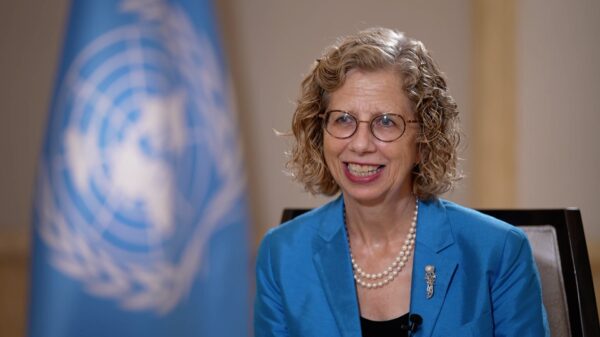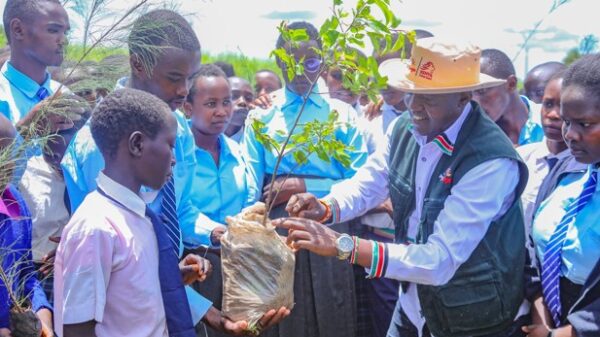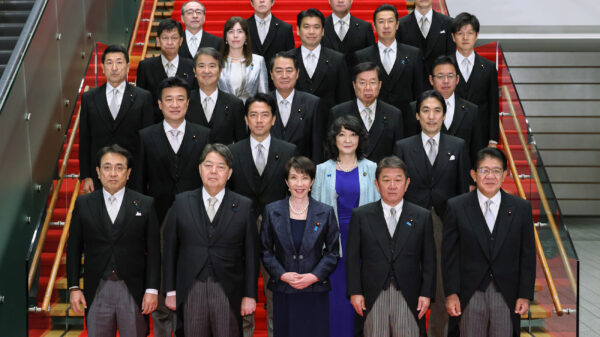NAIROBI, Kenya, Oct 28 – First Lady Rachel Ruto has called for urgent investment and financing to accelerate Kenya’s transition from traditional firewood use to clean cooking technologies in schools, correctional facilities, and other public institutions.
Speaking in Nairobi at the opening of a two-day High-Level Summit on Unlocking Finance and Investment for Institutional Clean Cooking, Mrs. Ruto said that most institutional meals in Kenya are still prepared using biomass fuels, primarily firewood, posing grave risks to health, forests, and the climate.
“Most institutional meals in schools and correctional facilities are still prepared using firewood,” she said. “This has caused devastating effects on the health of our people, our forests, and on the climate.”
Despite the persistent challenges, Mrs. Ruto noted that Kenya has made measurable progress. Access to clean cooking has risen from about 10 percent in 2013 to over 30 percent in 2023, signaling momentum that could be scaled through public-private partnerships.
Across sub-Saharan Africa, however, the picture remains bleak. Roughly four in five households still lack access to clean cooking fuels and technologies, with only 23 percent of the region’s population benefiting from modern options. The toll, she emphasized, is severe, especially for women and children.
“Hundreds of thousands of Africans suffer or die prematurely every year from household air pollution,” Mrs. Ruto said. “We must finance clean cooking not as an afterthought, but as an act of faith in Kenya’s future. Each of us in this room, governments, banks, philanthropies, and investors, holds a piece of the solution.”
She reaffirmed Kenya’s ambitious goal of achieving universal clean cooking access by 2028, calling it “not just a policy target, but a promise, that no mother or child will pay the hidden cost of cooking with smoke.”
Mrs. Ruto recalled visiting Testai Primary School in Nakuru County, where cooks were preparing meals in a kitchen thick with smoke.
“Their eyes were watering, they were coughing,” she said. “I imagined what it would mean to replace that smoke with clean air.”
That transformation, she said, is already underway. Under the National Council for Nomadic Education(NACONEK), a pilot program across six schools—including Nairobi School and Garissa High, is converting kitchens to modern steam-powered systems. The initiative has reduced firewood consumption, lowered costs, and created safer environments for staff and students alike.
Through her organization, Joyful Women (JoyWo), Mrs. Ruto has also sought to link women’s economic empowerment with clean energy adoption. Using a table banking model, JoyWo enables women to access credit for modern clean cooking technologies, helping them shift from biomass dependence to sustainable alternatives.
“Table banking is empowering women to lead the clean cooking revolution—one household and one enterprise at a time,” she said.
The summit gathered key policymakers and global partners, including Education Cabinet Secretary Migos Ogamba, Investment Promotion Principal Secretary Abubakar Hassan, Kenya’s Special Climate Envoy Ambassador Ali D. Mohammed, and Clean Cooking Alliance CEO Dymphna van der Lans.
CS Ogamba underscored that transitioning to modern cooking technology could reduce institutional fuel costs by up to 90 percent, offering financial relief to schools and families.
“Traditional cooking methods relying on firewood are costly, inefficient, and harmful to health and the environment,” he said.
PS Hassan outlined a five-point plan to collaborate with the National Treasury to establish incentives that attract international capital into Kenya’s clean energy sector.
Ms. van der Lans commended Kenya’s leadership in carbon financing but urged a shift from pilot projects to large-scale investment.
“Kenya is already a trailblazer in carbon financing,” she said. “We have piloted enough, it’s time to invest and implement.”
Ambassador Mohammed warned that the cost of indoor air pollution on Kenya’s health sector amounts to Sh33 billion annually, with over 26,000 Kenyans, more than half of them children under five, dying each year from exposure to smoke and toxic fumes.
Kenya’s institutional sector remains a major consumer of biomass energy, with more than 35,000 primary schools, 10,000 secondary schools, and 136 correctional facilities relying heavily on firewood to prepare meals for millions. The 2023 Master Facility List recorded 14,883 institutions still dependent on biomass as their main energy source.
For Mrs. Ruto, the push for clean cooking is not merely an environmental goal but a moral and developmental duty.
“Clean cooking is not just about stoves or fuels—it’s about dignity, health, and the promise of a better tomorrow,” she said. “The time to act is now.”
















































